Are Skunks a Threat to Pets?
Skunks, although once thought of as rural creatures that are cute and sweet, have increasinglybecome a concern and threat for urban dwellers in terms of the safety of their children, their household, and even their pets.
Homeowners who have encountered a skunk in their area or even inside their home are often concerned that they have become unsafe and are unsure what they should do to protect themselves, their property, their children, and especially their pets.
It is important to note that when a skunk tries to enter an urban property whether that is a store or a family home, they are often doing so in search of food. Skunks are omnivores meaning that they eat both plants and meat. This means that skunks aren’t always a threat, they often are known to eat plants and leftovers from your trash because they are considered opportunistic urban scavengers. Therefore, they may simply be searching for plants or insects to feed on.
However, if you have a skunk inside your home, this could be cause for concern as they are known to eat other animals and as a bigger meal is more appetizing and means less time spent hunting for food, if there is a bigger option and the skunk is hungry it is likely to attack a small pet.
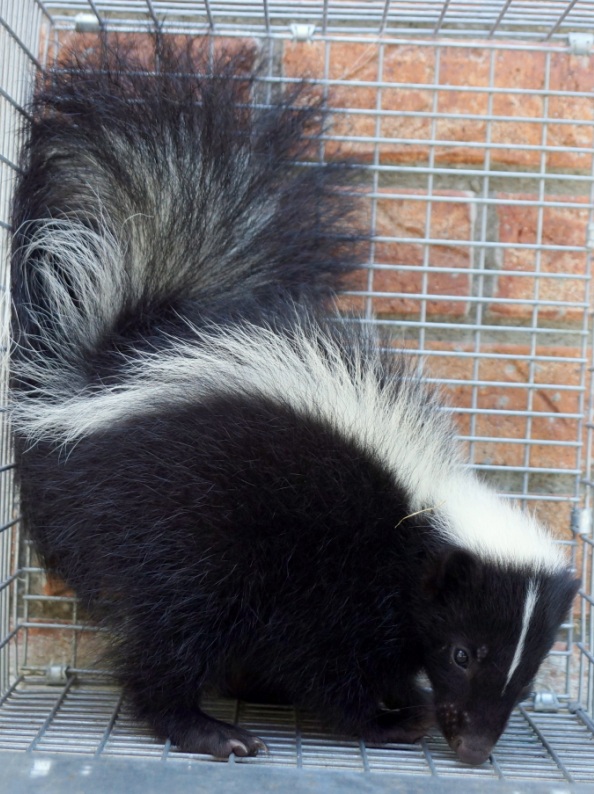
Not all pets are at direct risk when there is a skunk on the property, so it depends on what type of pet you have. Skunks, due to their size, are unlikely to attack a cat or a dog as they could easily be killed in the encounter. Smaller animals however such as chickens, which are a less common household pet, could be in danger.
The only time a skunk is a threat to common pets such as a dog or a cat is if it feels threatened. If the dog or cat traps or corners the skunk it will raise its tail as a sign of warning before spraying the pet with its scent. This is a defense reaction and is only done when the skunk fears for its life, it aims to stun the predator while it flees. If your pet has been sprayed by a skunk it should be taken to the vet to have its eyes rinsed and cleaned and the scent removed. If for any reason you have any concerns that a skunk has bitten or scratched your pet, you should take it to the vet immediately.
Select Your Animal

Raccoons
Raccoon Removal Information & How-To Tips

Squirrel
Squirrel Removal Information & How-To Tips
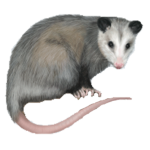
Opossum
Opossum Removal Information & How-To Tips
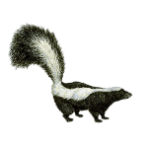
Skunks
Skunks Removal Information & How-To Tips
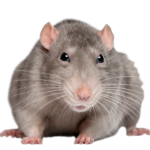
Rats
Rat Removal Information & How-To Tips
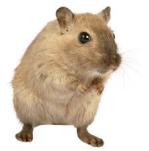
Mouse
Mouse Removal Information & How-To Tips
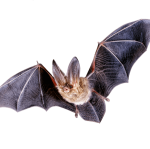
Bat
Bat Removal Information & How-To Tips

Bird
Bird Removal Information & How-To Tips
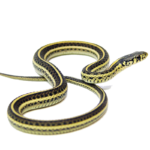
Snake
Snake Removal Information & How-To Tips

Beaver
Beaver Removal Information & How-To Tips
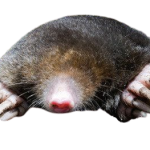
Mole
Mole Removal Information & How-To Tips
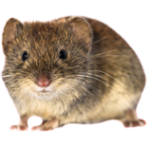
Vole
Vole Removal Information & How-To Tips

Gopher
Gopher Removal Information & How-To Tips
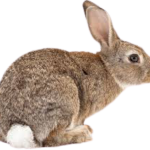
Rabbit
Rabbit Removal Information & How-To Tips

Woodchuck
Woodchuck Removal Information & How-To Tips
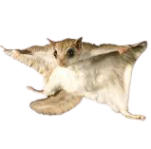
Flying Squirrel
Flying Squirrel Removal Information & How-To Tips
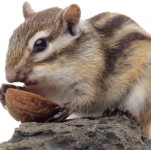
Chipmunk
Chipmunk Removal Information & How-To Tips
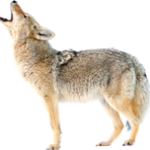
Coyote
Coyote Removal Information & How-To Tips

Fox
Fox Removal Information & How-To Tips
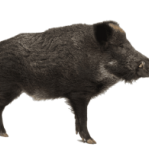
Wild Hog
Wild Hog Removal Information & How-To Tips
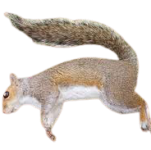
Dead Animal
Dead Animal Removal Information & How-To Tips